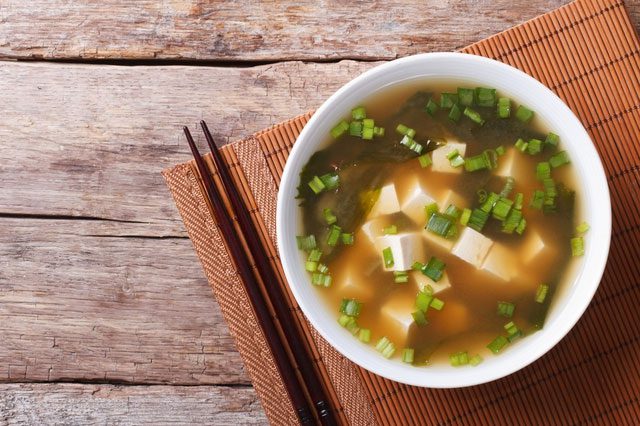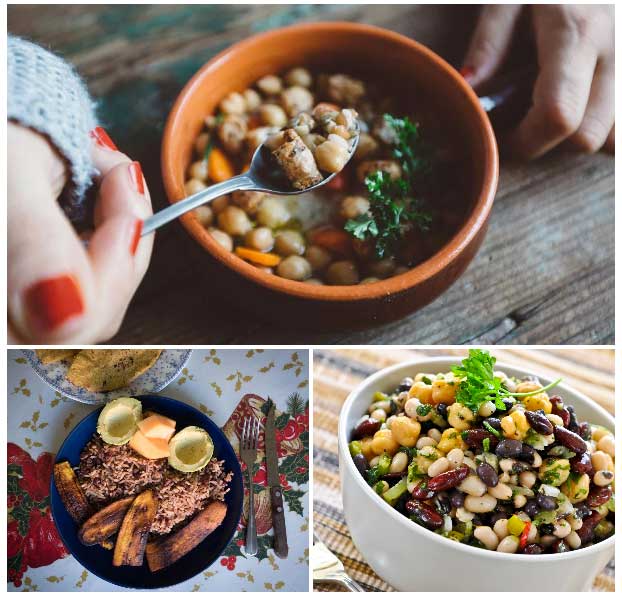Beans are a staple component in the diets of people living in the five Blue Zones, which include Nicoya (Costa Rica), Loma Linda (California, USA), Okinawa (Japan), Sardinia (Italy), and Ikaria (Greece) – areas known for their healthy centenarians.
According to longevity expert Dan Buettner, those who live to be 100 years old in these regions consider beans an integral part of their daily diet.
Buettner shared with Insider: “I believe beans are a type of ‘superfood’ beneficial for health.”
He noted that in the Blue Zone of Sardinia, Italy, residents typically consume chickpeas and fava beans at least twice a day. These two types of beans are key ingredients in the appetizers served throughout the day, helping the people of Sardinia reap the health benefits of beans.
Similarly, Buettner highlighted that the primary food contributing to the longevity of people in Okinawa, Japan, is soybeans, such as natto or miso soup.
“People in Okinawa often eat tofu at every meal. Typically, breakfast includes miso soup with pieces of tofu made from soybeans,” Buettner stated.

Japanese miso soup.
Reasons Why Centenarians Prefer Eating Beans
All types of beans are rich in nutrients, including vitamins and minerals such as copper, iron, magnesium, potassium, folic acid, and zinc; essential amino acids like lysine, as well as protein and fiber.
Furthermore, Buettner noted that each type of bean has some standout nutritional components, so it is advisable for people to consume a variety of beans for optimal health. For instance, adzuki beans contain more fiber than many other types, while fava beans are rich in the antioxidant lutein. Black and dark red kidney beans are high in potassium, and green beans provide a good source of magnesium.
Buettner explained: “The fiber in beans helps keep the gut microbiota healthy, reduces inflammation, and boosts immunity. However, very few people consume enough fiber.”
He added: “Beans also contain a wealth of plant-based protein, which is healthier because it is more nutrient-dense and lower in calories compared to animal protein.”
In practice, Buettner stated that combining beans with whole grains seems to provide nearly all the amino acids necessary to form complete proteins similar to those found in meat.
Buettner pointed out that studies show the health benefits of beans. Soluble fiber in beans can help reduce ‘bad’ cholesterol and prevent type 2 diabetes by stabilizing blood sugar levels.
One study indicated that consuming beans four times a week could reduce the risk of heart disease by 22%.
Another study found that eating about 20 grams of beans daily could extend lifespan by approximately 8 years.
Beans even support weight loss. According to a review of studies, individuals who consumed around 250 grams of beans daily for six weeks lost more than 0.34 kg compared to those who did not eat beans.

Nutrient-rich beans favored by Blue Zone residents.
Beans Are Beneficial for Both Health and Budget
Buettner noted that, in addition to all these benefits, beans and their legume relatives are inexpensive and can be grown at home in various soil types. This makes them an ideal food for economically disadvantaged individuals seeking longevity benefits.
In Vietnam, dried beans are also sold at quite affordable prices. Beans are one of the nutritious, convenient foods that have been enjoyed by the Vietnamese for a long time, along with the longevity benefits they confer.


















































